
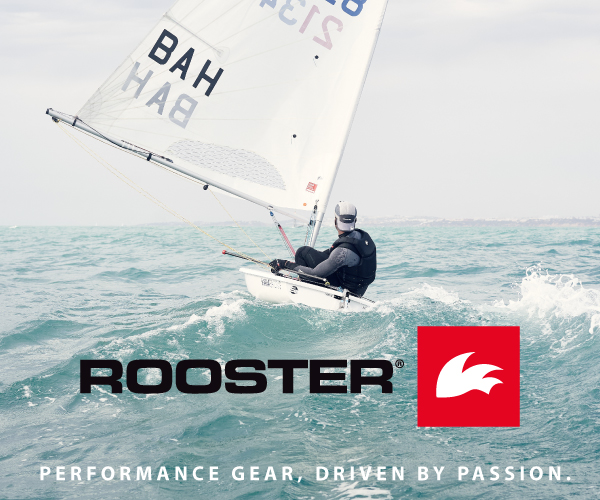

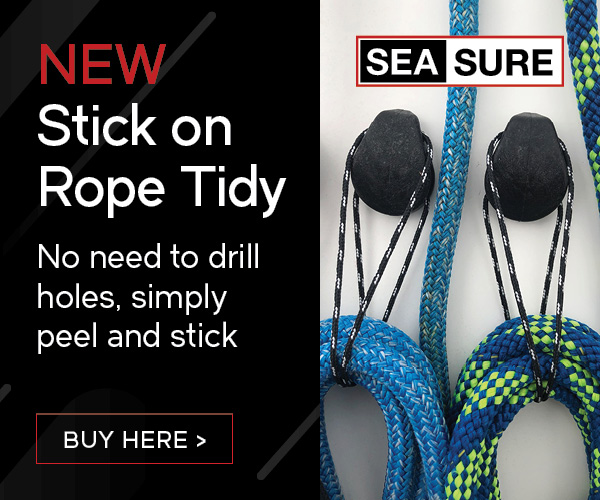

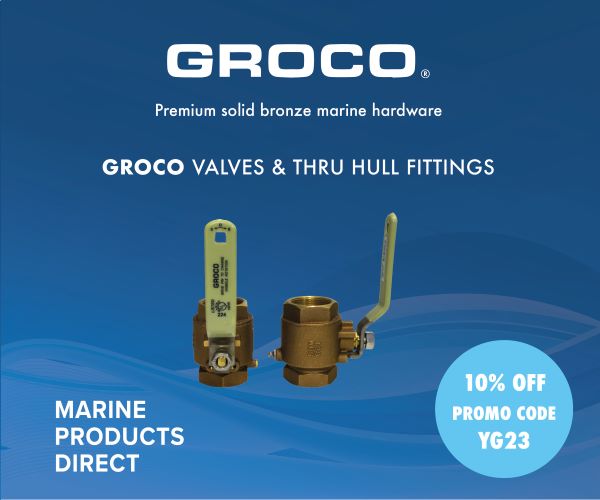
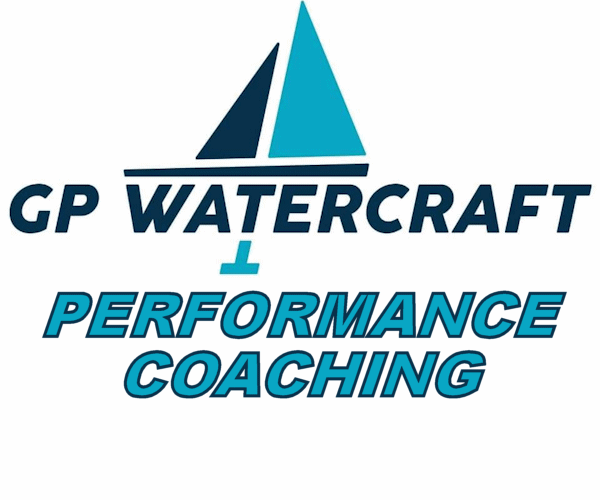
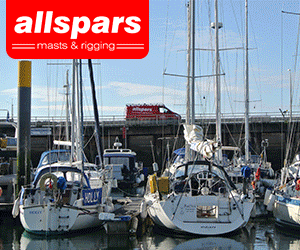

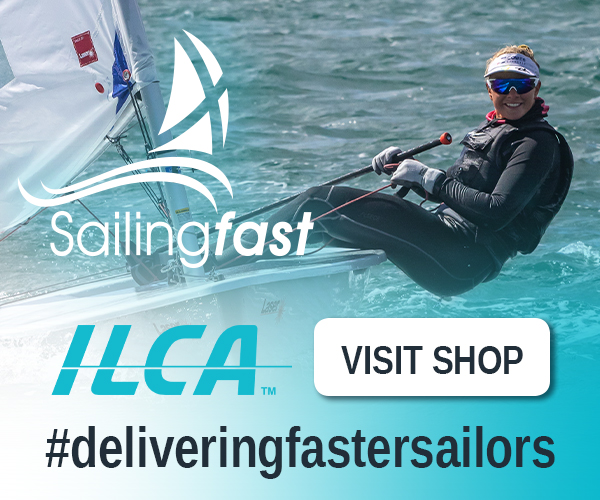
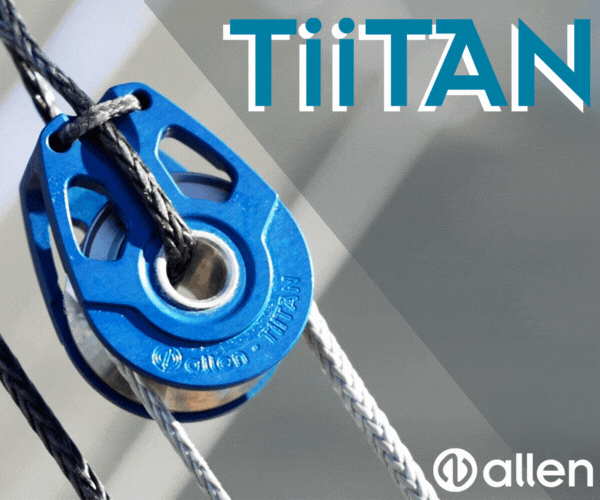
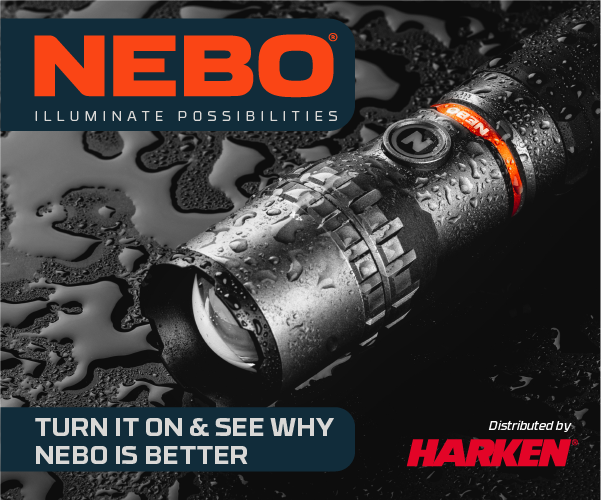
Boats for sale
| Laser 140101 Tynemouth |
 |
| Laser 28 - Excellent example of this great design Hamble le rice |
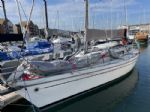 |
| Rossiter Pintail Mortagne sur Gironde, near Bordeaux |
 |
List classes of boat for sale |
Carbon or not Carbon |
Post Reply 
|
Page 123 5> |
| Author | |
Guests 
Guest Group 
|
 Post Options Post Options
 Quote Quote  Reply Reply
 Topic: Carbon or not Carbon Topic: Carbon or not CarbonPosted: 27 May 10 at 9:29pm |
|
Right then....
The benefits of a carbon mast! Why carbon? Specifically what are the performance benefits? Why did the Halo not choose a carbon mast? Why do phantoms now want a carbon mast? What would the RS400 gain from a carbon mast? What is it about carbon? Builders clearly have big choice to make. Answers on a postcard. I would have setup a poll but apparently its a waste of clicks! Timg |
|
 |
|
JimC 
Really should get out more 

Joined: 17 May 04 Location: United Kingdom Online Status: Offline Posts: 6662 |
 Post Options Post Options
 Quote Quote  Reply Reply
 Posted: 27 May 10 at 9:52pm Posted: 27 May 10 at 9:52pm |
|
To my mind there are two potential benefits of a plastic stick: weight and bend characteristics.
Weight: well the performance advanatges of lower weight and especially lower moment of inertia are obvious, but the lack of weight also makes things so much easier off the water. With my canoe I can be quite astonishingly casual stepping and unstepping the mast compared to using an alloy stick... Bend is rather more subtle. Alloy masts have to be cut and shut welded into a taper, and there are limits in what you can achieve with this process, and in addition the rest of the section must be parallel and the wall thickness consistent. None of this is a great issue with a carbon stick, so its much easier to design a mast with nerer to ideal bend characteristics. However that's just half the story in a SMOD, because if you're going to change the mast bend then you also need to change the sails: the sails have to match the mast of course, so there's no real point in keeping the same sails: if you do the mast has to have the same nbend, which is to waste half the advantages. The Byte got it thoroughly right by abanadoning the old rig and starting again. In the case of the RS400 it would be a chance to correct mistakes and start again: to my mind the rig is unbalanced with too much fore and aft area and not enough kite. A shorter foot mainsail, maybe with a slightly less overlapping jib and a bigger kite with a higher hoist and maybe a longer pole would to my mind make for a rather nicer boat: aiming for about the same overall speed, but a bit more downwind horsepower and less upwind. I also find the RS400 main very heavy, so it would be better in that way too. Just stuffing a carbon stick on and keeping everything else the same is really just wasting sailors' money until the time comes when platic rigs are actually cheaper than tin. Of course sailors do love spending money to go a tiny fraction faster, but in a SMOD why bother? The stats demonstrate clearly that speed != popularity! Edited by JimC |
|
 |
|
Guests 
Guest Group 
|
 Post Options Post Options
 Quote Quote  Reply Reply
 Posted: 27 May 10 at 10:03pm Posted: 27 May 10 at 10:03pm |
|
Really interesting reply Jimc thanks
I agree about the bend characteristics And that's one hell of a 400 rig suggestion. Could it be possible to make it less of a hike upwind? Timg |
|
 |
|
asterix 
Really should get out more 
Joined: 01 Aug 09 Location: United Kingdom Online Status: Offline Posts: 621 |
 Post Options Post Options
 Quote Quote  Reply Reply
 Posted: 27 May 10 at 10:12pm Posted: 27 May 10 at 10:12pm |
|
bit of a tounge in cheek reply, but I spent last weekend sailing a 20 ft dinghy with a balanced lug sail and a bamboo rig. Amazing stuff, bamboo seemed as light and strong as carbon (porbably isn't) but not at all bendy. but still it makes you think about the price of carbon! |
|
 |
|
Guest 
Newbie 
Joined: 21 May 04 Location: United Kingdom Online Status: Offline Posts: 0 |
 Post Options Post Options
 Quote Quote  Reply Reply
 Posted: 27 May 10 at 10:19pm Posted: 27 May 10 at 10:19pm |
|
I think the recovery from a loading flex for carbon is quicker making them more gust responsive. Also a major benefit is that can be glued back together when they get snapped. Finally the most important factor they look cool... |
|
 |
|
Guests 
Guest Group 
|
 Post Options Post Options
 Quote Quote  Reply Reply
 Posted: 27 May 10 at 10:26pm Posted: 27 May 10 at 10:26pm |
Not when they need a varnish they don't! Timg |
|
 |
|
JimC 
Really should get out more 

Joined: 17 May 04 Location: United Kingdom Online Status: Offline Posts: 6662 |
 Post Options Post Options
 Quote Quote  Reply Reply
 Posted: 27 May 10 at 10:56pm Posted: 27 May 10 at 10:56pm |
Well consider this gross over simplification: follow one upwind directly from behind and fully powered up. I bet you'll be able to spot a triangle of sail from the foot to say about 3/4 the way up the leech which is at best parallel to the centre line. Surely that can only be contributing heeling moment. Cut it off and you'll get less heel for the same forward power. As soon as you're cracked off that sail is contributing of course, but the same area will contribute more in the kite. There are an awful lot of tradeoffs to consider of course, for instance the smaller main/bigger kite boat will tend to suit a slightly lighter crew, although in the case of the 400 weight must help getting that bow through waves - at least that's my theory why lightweights seem to do better inland than at sea. |
|
 |
|
patj 
Really should get out more 
Joined: 16 Jul 04 Location: Wiltshire Online Status: Offline Posts: 643 |
 Post Options Post Options
 Quote Quote  Reply Reply
 Posted: 27 May 10 at 11:08pm Posted: 27 May 10 at 11:08pm |
|
The benefit of a carbon update to an older boat of a classic class e.g. a merlin rocket or finn? Getting your handicap clobbered at a cvrda event - roughly PY-40 for a carbonised boat with modern sails.
Edited by patj |
|
 |
|
blaze720 
Really should get out more 
Joined: 28 Sep 05 Location: United Kingdom Online Status: Offline Posts: 1635 |
 Post Options Post Options
 Quote Quote  Reply Reply
 Posted: 27 May 10 at 11:11pm Posted: 27 May 10 at 11:11pm |
|
Halo went non-carbon in the end after a long development assessment with both alloy and carbon for a number of reasons. The prime one being it is what the 'heavies' who were the target of the project suggested and supported it. My own preference was in fact for carbon but then I'm not typical of the target customer being a 'mere' 83kg. In fact we devoted more time, money and effort into carbon mast development and assessment than we did into alloy ones. Critically Halo is aimed at those a 'tad' heavier than average.
The key argument that they pushed was that the alloy selection was not only much more cost effective but it made it less of an advantage being towards the bottom of the target weight range. Many of their alternative classes were and are experiencing a down-shift in ideal helm weight as a result of the introduction of 'better' carbon masts that do allow lower weight helms to cope in nearly all conditions - it pays to be heavy less and less often. 11.6m and an alloy mast meant that Halo is more traditional in this respect. The purpose of the development was not to produce the fastest possible Halo for average weight helms - but a fast boat that encouraged larger helms and played to their strengths. However the boat is 2.5m wide and they have a more weight and the result is a lot of leverage - so it goes rather well to say the least. We are not 'anti' carbon and if the paying customers want a carbon mast they would get one. They did still want to use the same carbon boom as the Blaze as standard and so on and our other projects will use carbon spars as well. So Halo as a moderately fast single sail SMOD is more tightly controlled than some, arguably very suited to the larger helm - a group hardly addressed in recent years possibly - and is significantly less expensive as a result of opting for 'old fashioned' alloy. Absolute speed is not everything .... But Halo is still fast enough and faster than most alternatives regardless of the spar material employed. Don't write off alloy too quickly just yet.... or centreboards .... or wings over trapeze or even (modern) single sail classes for that matter. Judge Halo and just everything else after you have tried and perhaps raced against the alternatives across a range of conditions. Halo has surprised a great many already and will increasingly be seen to do so as numbers rise. Just ask and you can find out for yourself. Mike L. PS - Last thought - Carbon masts should be finished in white inho. Just as fast, run 'cool', less maintenance etc .... or is it mainly a UK obsession to lacquer them ? |
|
 |
|
G.R.F. 
Really should get out more 
Joined: 10 Aug 08 Location: United Kingdom Online Status: Offline Posts: 4028 |
 Post Options Post Options
 Quote Quote  Reply Reply
 Posted: 28 May 10 at 9:13am Posted: 28 May 10 at 9:13am |
|
Just wondered if anyone's ever tried carbon alloy hybrid style masts.
Alloy base and carbon top section where the gust response and return to centre is needed. Replacement cost would be cheaper. |
|
 |
|
Post Reply 
|
Page 123 5> |
| Forum Jump | Forum Permissions  You cannot post new topics in this forum You cannot reply to topics in this forum You cannot delete your posts in this forum You cannot edit your posts in this forum You cannot create polls in this forum You cannot vote in polls in this forum |
Bulletin Board Software by Web Wiz Forums® version 9.665y
Copyright ©2001-2010 Web Wiz
Change your personal settings, or read our privacy policy
Copyright ©2001-2010 Web Wiz
Change your personal settings, or read our privacy policy











 Printable Version
Printable Version Delicious
Delicious Digg
Digg Facebook
Facebook Furl
Furl Google
Google MySpace
MySpace Newsvine
Newsvine reddit
reddit StumbleUpon
StumbleUpon Twitter
Twitter Windows Live
Windows Live Yahoo Bookmarks
Yahoo Bookmarks Topic Options
Topic Options